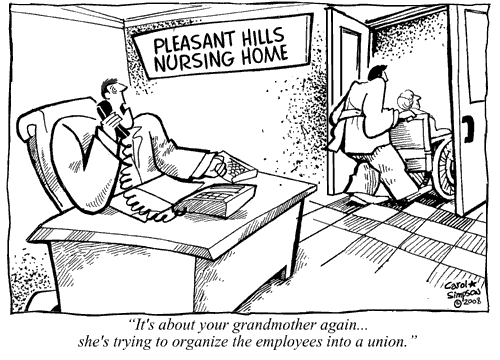This Valentine’s Day, folks across the country will be either ignoring the romantic vibes altogether, deriding the holiday, praising the single life, celebrating an ongoing romance, or trying to start a new one. For folks seeking out companionship, relationships can … Continue reading
Alison Reiheld
The rhetoric surrounding late abortions and so-called “fourth trimester abortions” (in which the fetus is alive after an attempted abortion) touches perilously on the ethical issues surrounding care for very premature infants. The author of this blog entry at a … Continue reading
Sandhya Somashekhar’s recent article in The Washington Post, “States find new ways to resist health law”, provides a nice overview of some of the ways that states are throwing up obstacles to effective implementation of the Patient Protection and Affordable Care Act (PPACA). With the Affordable Care Act set to be implemented, blocking its effective implementation raises serious moral issues. Though it is an imperfect solution, I believe that these state-based obstacles to its implementation are deeply morally problematic because the costs of non-compliance fall on individuals while the politicians who have put these obstacles in place face little or no personal or political cost, and indeed stand to gain.
While I am arguing here that blocking implementation of the PPACA is deeply morally problematic, it is important to acknowledge that it is an imperfect solution to America’s glaring problem of uninsured persons and expensive, inefficient provision of health care. The PPACA or ACA, known colloquially as “Obamacare”, will work to get more Americans into the health care market and provide more access to preventive care for high- and low-risk patients, alike. Aside from the very valuable limitations on health insurers’ ability to refuse to provide coverage for high-risk patients and stop providing coverage for ill patients, it is still based on the for-profit health insurer model as evidenced in part by the early elimination of a government-based “public option” which would have competed with insurance industry plans. In addition, a large number of Americans who get insurance through their employers, yet find the premiums taxing and fall into otherwise-subsidized income ranges, will not have access to the federal subsidy system which is designed to give financial support to those entering the market through the health insurance exchanges.
Continue reading
Image Credit: Carol Simpson
Recently, Craig Klugman wrote a thought-provoking blog entry over at bioethics.net on long-term care options for elderly persons. While humane ones do exist that are designed for human flourishing, such as a new chain of purpose-designed communities where elderly folks have access to developing new skills in the visual and performing arts, these are often very expensive.
More often, facilities which provide in-patient nursing care still significantly “warehouse” their residents, providing medical care but treating the elderly as people waiting for death rather than persons who can still grow and learn and contribute. National Public Radio has an ongoing investigative news series called “Home or Nursing Home: America’s Empty Promise to Give the Elderly and Disabled A Choice.” In that series, NPR reporters chronicle many of the same kinds of difficulties Klugman discusses in his blog entry. Long-term care facilities have notoriously high staff turnover rates, in part due to difficult working conditions but also due to low pay. In-home careworkers are similarly poorly paid. 90% of these direct care workers are women, and earn an average of approximately $17,000/year. This is due in part to the fact that the federal law governing wage and overtime protections, the Fair Labor Standards Act (FLSA), explicitly does not cover home care workers. Even facility-based care workers receive very little pay.
Continue readingThe excellent Nursing Clio blog has an entry by Ashley Baggett called “The Battle of the Sexes in Health Care.” In the entry, Baggett critiques a NPR commentary on a recent scholarly article in The Lancet on gender and public … Continue reading
UNICEF’s 2013 comparative report on child well-being in rich nations, AKA the Innocenti Report Card 11 (see page two of the report for a handy visual summary of findings) deserves our consideration. The news is Not Good for children in some of the richest nations amongst the group: the U.S., for instance, ranks with a number of rather worse-off—by GDP—Baltic nations. Geography also is no clear indicator: whereas the U.S. comes in 26th overall out of 29, fellow North American nation Canada comes in middle-of-the-pack at 17th. The top five in order are Netherlands, Norway, Iceland, Finland, and Sweden.
Continue readingThe State of California recently banned discrimination against transgender patients in the provision of health insurance. It was only the third state to do so. Lack of access to health care is common for transgender persons. Reasons include—but are not limited to—fear of encountering stigma, employment discrimination which limits access to health insurance, and insurance providers refusing to cover medically necessary care.
In the state of Missouri, 5% of transgender adults report that they were refused EMT care, 13% report that they were refused Emergency Room care, and 24% report that they were refused care in a doctor’s office. The context of California’s policy change is thus one of serious health disparities for transgender patients and constitutes a step forward in public policy including transgender folks in our moral community and giving credence to their health care needs.
Continue readingThe Supreme Court of the United States (handily referred to in short as SCOTUS) heard arguments on April 22, 2013, weighing speech rights of grant-receiving non-profit organizations against the rights of the U.S. government to put restrictive conditions on the grants which they give. At issue is whether the U.S. government, through the U.S. Agency for International Development (USAID) can require groups doing anti-HIV work supported by USAID to take a stance against prostitution.
Continue reading



